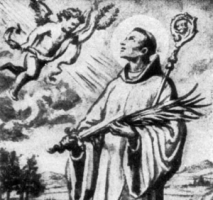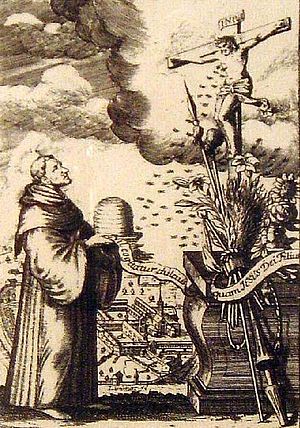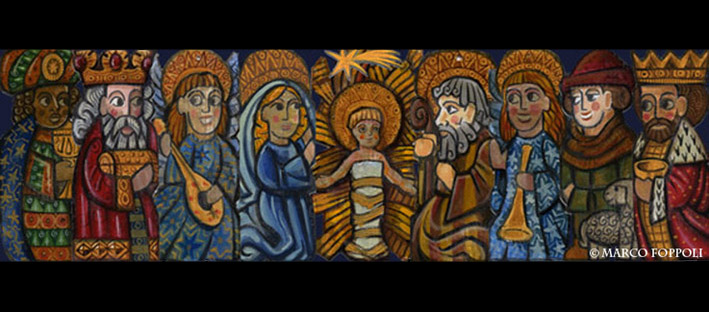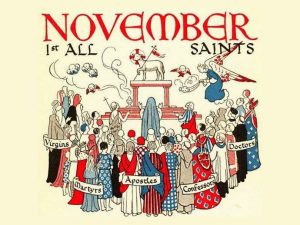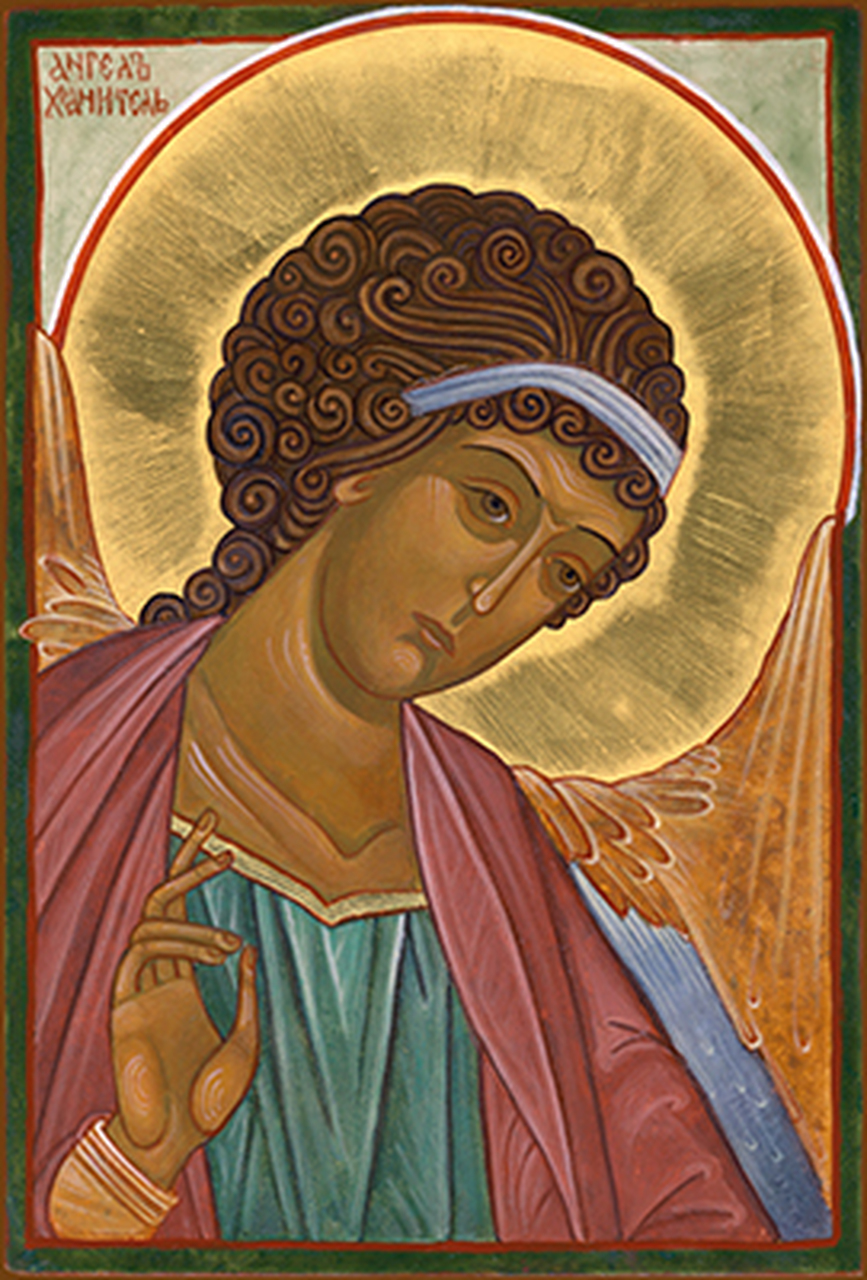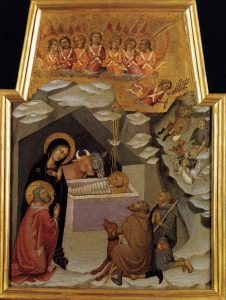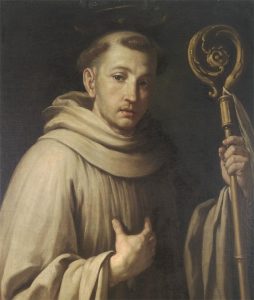The following reflection was written for members of the Order of the Holy Sepulchre of Jerusalem and published on one of the Facebook groups of the Order.
In a week’s time we will be celebrating the Nativity of our Lord and Savior, Jesus Christ. A fact. An experience of Faith. The Fathers of the Church teach us that the Incarnation means that God Who is incomprehensible and inexpressible lowered Himself in His mercy taking human nature to not only restore what Adam lost, but to offer us the possibility of our participation in His divine nature. This participation is what we call theosis.
Here is something for us to think about as we prepare for the Nativity of the Lord. There’s a Divine promise contained in the event of the Incarnation. The following homily for Advent delieverd by St. Bernard of Clairvaux (1090-1153) notes for us the contours of the promise.
“We know that there are three comings of the Lord. The third lies between the other two. It is invisible, while the other two are visible.“In the first coming he was seen on earth, dwelling among men; he himself testifies that they saw him and hated him. In the final coming all flesh will see the salvation of our God, and they will look on him whom they pierced. The intermediate coming is a hidden one; in it only the elect see the Lord within their own selves, and they are saved. In his first coming our Lord came in our flesh and in our weakness; in this middle coming he comes in spirit and in power; in the final coming he will be seen in glory and majesty.
“In case someone should think that what we say about this middle coming is sheer invention, listen to what our Lord himself says: If anyone loves me, he will keep my word, and my Father will love him, and we will come to him [Jn. 14:23].
“There is another passage of Scripture which reads: He who fears God will do good, but something further has been said about the one who loves, that is, that he will keep God’s word. Where is God’s word to be kept? Obviously in the heart, as the prophet says: I have hidden your words in my heart, so that I may not sin against you.
“Keep God’s word in this way. Let it enter into your very being, let it take possession of your desires and your whole way of life. Feed on goodness, and your soul will delight in its richness. Remember to eat your bread, or your heart will wither away. Fill your soul with richness and strength.
“Because this coming lies between the other two, it is like a road on which we travel from the first coming to the last. In the first, Christ was our redemption; in the last, he will appear as our life; in this middle coming, he is our rest and consolation.
“If you keep the word of God in this way, it will also keep you. The Son with the Father will come to you. The great Prophet who will build the new Jerusalem will come, the one who makes all things new. This coming will fulfill what is written: As we have borne the likeness of the earthly man, we shall also bear the likeness of the heavenly man. Just as Adam’s sin spread through all mankind and took hold of all, so Christ, who created and redeemed all, will glorify all, once he takes possession of all” (Office of Readings, Wednesday, First week of Advent).
St. Bernard’s theological reflection can be said as follows:
~First Coming – Jesus’ birth at Bethlehem;
~Second Coming – Spiritual coming of the Lord to each believer, sacramentally;
~Third Coming – Jesus coming again at the end of the world.
In what ways does what St. Bernard impact our our lives as members of the Order of the Holy Sepulchre? Hopefully, it re-orients how we live the reality of our sacramental life, and to give good witness to the Good News. As Knights and Dames of Holy Sepulchre we may want to consider what we are looking forward to on December 25th and in the Octave that follows.
Advent is a time of waiting for the Messiah: we wait for God to come into our lives, in reality. Christmas teaches us that sentimentality isn’t the goal, but the Infinite God is. The Word made flesh, the Incarnation, is the center of time and energy today.
However busy or distracted you might be in the coming days before Christmas, take note of what St. Bernard says about the coming of the Messiah, and the think about promise it contains for us. It is not merely a theological reflection, it is an experience.
Take courage, live in peace.
Artwork: The Nativity by Marco Foppoli, a heraldic artist and illustrator living and working in Brescia, Italy.
